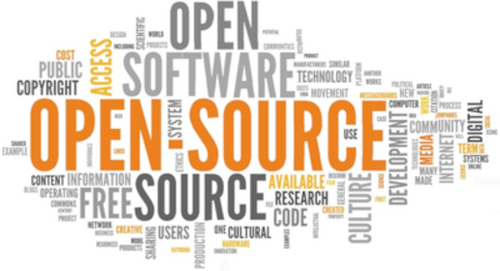Loading...
Trois Bonnes raisons de déposer vos logiciels ouverts :

1. Reconnaître : le logiciel de recherche est un élément incontournable de la production scientifique ouverte. Il se doit d’être considéré au même niveau que les publications et les données auxquelles il est étroitement lié
2. Signaler : avec des métadonnées adaptées et vérifiées, HAL assure un référencement de qualité, favorisant la visibilité et l’accès des codes sources.
3. Sauvegarder : le logiciel est fragile, les forges ne sont pas stables. SWH garantit la conservation de ses codes et leurs historiques de développement
Pour en savoir plus :
Brève IES : https://intranet.inria.fr/Actualite/Ou-referencer-et-archiver-ses-codes-sources-de-logiciels
Déposer le code source d’un logiciel : https://doc.hal.science/deposer/deposer-le-code-source/
Derniers dépôts sur hal.science
-
Money Ossohou, Jonathan Edward Hickman, Lieven Clarisse, Pierre-François Coheur, Martin van Damme, et al.. Trends and seasonal variability in ammonia across major biomes in western and central Africa inferred from long-term series of ground-based and satellite measurements. Atmospheric Chemistry and Physics, 2023, 23, pp.9473 - 9494. ⟨10.5194/acp-23-9473-2023⟩. ⟨insu-04553239⟩
-
Maria Tsivlidou, Bastien Sauvage, Yasmine Bennouna, Romain Blot, Damien Boulanger, et al.. Tropical tropospheric ozone and carbon monoxide distributions: characteristics, origins, and control factors, as seen by IAGOS and IASI. Atmospheric Chemistry and Physics, 2023, 23, pp.14039 - 14063. ⟨10.5194/acp-23-14039-2023⟩. ⟨insu-04553234⟩
-
-
-
NOMBRE DE DOCUMENTS EN TEXTE INTÉGRAL
1 341 228
Liens utiles
Actualités
Ce 9e opus de “Parlons Science ouverte” se propose de revenir sur les dernières actualités d’Episciences en faveur de la bibliodiversité, avec, en dernière partie, un focus particulier sur le tout nouveau titre disponible sur Episciences : Open Plasma Science, la première revue de physique en modèle diamant soutenu par l’Université de Lorraine.
15 avril matin (10h30/12h30)
Un article de données (data paper) est un article scientifique validé par les pairs qui a pour objectif de décrire un jeu ou des jeux de données, et de rendre ces données accessibles, interprétables et réutilisables. Aussi, en tant que chercheur, pourquoi rédiger ce type d’article ?
Cette séance s’adresse aux scientifiques qui produisent des données, ainsi qu'à ceux dont l'article s'appuie sur des données (de n'importe quel type) et désireux de se lancer dans l’écriture d’un data paper.
Ces journées auront lieu à Grenoble du 26 au 28 Mars 2024 seront diffusées en direct sur ce lien :
https://videos.univ-grenoble-alpes.fr/live/my_events/
Les présentations seront également enregistrées et disponibles ultérieurement sur le site web.
Paroles de lauréats du prix Science Ouverte données de la recherche - Jeudi 28 mars 2024 de 14h à 16h
12 mars 2024 de 14h00 à 15h30
Participation sur inscription: https://cnrs.zoom.us/webinar/register/WN_7ApR1CJ4QdSp8j7dCIvhow#/registration